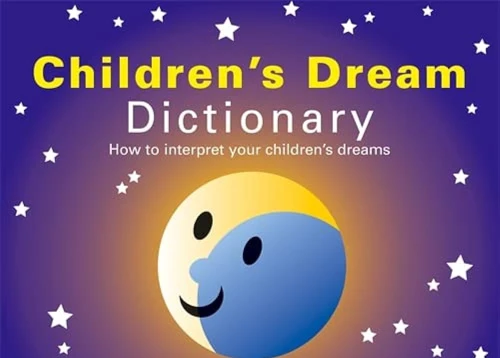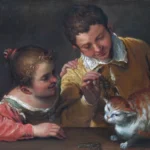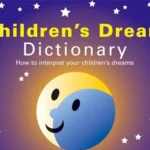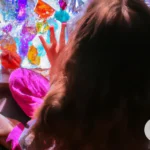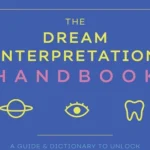Dreams have long been a source of fascination and intrigue, holding clues to our deepest desires, fears, and emotions. Exploring the symbolism of children in dreams can provide valuable insights into our subconscious mind. Children in dreams often represent innocence and vulnerability, but they can also serve as a reflection of unresolved childhood issues or the need for nurturing and caretaking. The age of the child in the dream can offer additional layers of interpretation. By delving into common scenarios and their corresponding meanings, we can gain a better understanding of the messages our dreams are trying to convey. So, let us embark on a journey through the world of dreams and decipher the fascinating symbolism of children.
Understanding the Symbolism of Children in Dreams
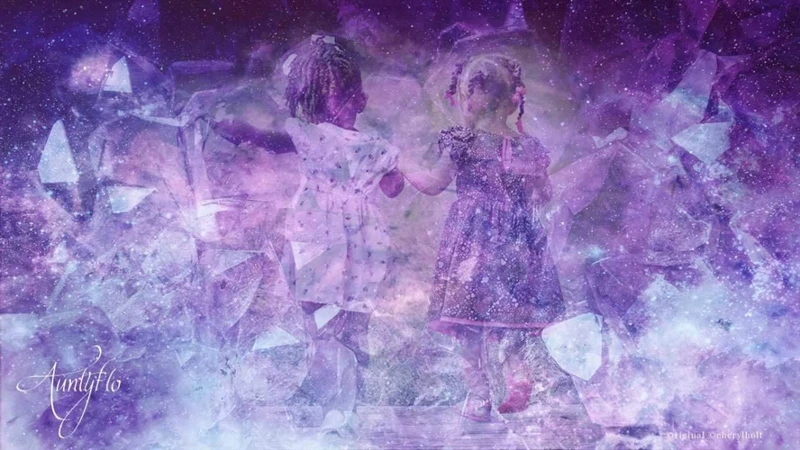
Understanding the symbolism of children in dreams is a fascinating endeavor, as it offers profound insights into the workings of our subconscious mind. Children often represent innocence and vulnerability, symbolizing our own pure and untouched aspects of self. They can also serve as a reflection of unresolved childhood issues, reminding us of past traumas or unresolved emotions that still linger within us. Additionally, children in dreams can signify the need for nurturing and caretaking, highlighting our own longing for love and support. Their presence can also indicate new beginnings and growth, as they represent the potential for the future. Children remind us of the importance of fun and playfulness in our lives, encouraging us to reconnect with our own sense of joy and spontaneity. Lastly, children in dreams can portray our inner child, representing the essence of who we truly are at our core. So, dive into the world of dreams, where children hold profound meaning and help us understand ourselves on a deeper level.
1. The Innocence and Vulnerability
The innocence and vulnerability of children in dreams hold significant symbolism. When children appear in our dreams, they often represent aspects of ourselves that are pure, untainted, and untouched by the complexities of the world. These dreams may reflect our own childlike qualities or remind us of the need to tap into our inner innocence. The vulnerability of children in dreams can be a reflection of our own fears and insecurities. It may indicate a sense of needing protection or a reminder to approach life with caution. Exploring the meaning behind the innocence and vulnerability of children in dreams can lead to a deeper understanding of our own emotions and experiences. If you’re interested, you can also check out our article on the symbolism of cancer in dreams.
2. Representation of Unresolved Childhood Issues
Representation of unresolved childhood issues is a common theme when children appear in dreams. These dreams can serve as powerful reminders of past traumas, emotions, or experiences that may still impact us today. When children symbolize unresolved childhood issues, it could indicate the need for healing and closure. These dreams can bring to light repressed memories or provide a space for processing unresolved emotions. They may encourage us to confront and work through these issues in our waking life in order to achieve personal growth and emotional well-being. Exploring the symbolism of children in dreams can provide a valuable opportunity for self-reflection and healing.
3. Reflection of Nurturing and Caretaking
Children in dreams often serve as a reflection of nurturing and caretaking. Their presence signifies our own need for love, support, and protection. When children appear in our dreams, it may indicate that we are craving a nurturing environment or seeking someone to care for us. It can also symbolize our desire to take care of others, to be responsible for their well-being. This symbolism highlights the importance of fostering relationships built on love, empathy, and compassion. Just as children rely on grown-ups for care, we too can learn to provide support and nourishment to those around us. The presence of children in our dreams is a gentle reminder to channel our nurturing instincts and create a loving, caring environment for ourselves and those we hold dear. By embracing our role as caretakers, we can cultivate meaningful connections and promote a sense of belonging and security.
4. Signifies New Beginnings and Growth
When children appear in dreams, they often symbolize new beginnings and growth. Just as children represent a fresh start in life, their presence in dreams can signify the start of a new chapter or the unfolding of new opportunities. This symbolism is particularly relevant during times of transition or when embarking on a new endeavor. The appearance of children in such dreams can serve as encouragement to embrace change and take bold steps towards personal growth. Just as children possess an innate curiosity and resilience, their presence in dreams reminds us to approach new beginnings with a sense of wonder and openness. Embrace the symbolism of children in dreams as a sign of exciting new possibilities waiting to unfold.
5. Illustrates the Need for Fun and Playfulness
Children in dreams often symbolize the need for fun and playfulness in our lives. When we dream of children engaging in playful activities, it serves as a reminder for us to embrace our inner child and find joy in the simple pleasures of life. These dreams encourage us to let go of our serious and adult responsibilities for a while and indulge in activities that bring us happiness and laughter. Just like children, we too need moments of lightheartedness and play to maintain a healthy balance in life. So, the next time you dream of children playing, take it as a gentle nudge from your subconscious to prioritize fun and playfulness in your waking life. Let go of stress and responsibilities, and allow yourself to reconnect with the carefree spirit of your inner child.
6. Portrays the Inner Child
The presence of children in dreams often serves as a powerful symbol that portrays our inner child. Our inner child represents the purest essence of who we are, carrying our joy, creativity, and curiosity. When children appear in dreams, they can remind us to reconnect with these qualities and embrace a sense of playfulness and wonder. They may symbolize our need to nurture and care for this inner child within us, acknowledging the importance of self-care and self-expression. By embracing and acknowledging our inner child, we can tap into a wellspring of creativity and rediscover the things that bring us genuine happiness. So, pay attention to the presence of children in your dreams and honor the inner child that resides within you, allowing them to guide you towards a more joyful and fulfilling life.
Common Scenarios and their Interpretations
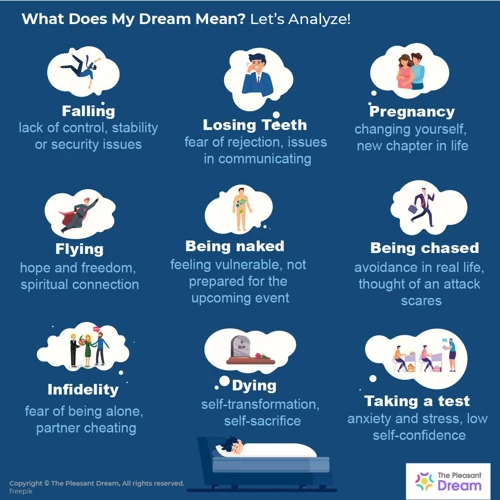
Common scenarios involving children in dreams can provide valuable insights into the messages our subconscious is trying to convey. One common scenario is playing happily with children, which signifies a sense of joy, innocence, and a desire for lightheartedness in our waking life. On the other hand, dreams of children crying or sadness may indicate unresolved emotions or a need for emotional healing. Communication and interaction with children in dreams can symbolize the need for connection, understanding, and open expression in our relationships. Exploring these scenarios can help us unravel the hidden meanings behind our dreams and gain a deeper understanding of ourselves. So, let’s dive into the interpretations of these common dream scenarios involving children and uncover the messages they hold for us.
1. Playing Happily
Playing happily is a common scenario in dreams involving children, and it holds significant symbolism. When we dream of children playing joyfully, it often represents a sense of freedom, spontaneity, and carefree attitude that we may long for in our waking lives. It can symbolize a period of happiness and contentment, where we allow ourselves to let go of responsibilities and immerse ourselves in pure enjoyment. This dream scenario can also indicate a need for more fun and playfulness in our daily routines, reminding us to make time for activities that bring us joy. It serves as a gentle nudge to embrace our inner child and find moments of lightheartedness in our lives. So, if you find yourself dreaming of children playing happily, it’s a beautiful reminder to cherish the moments of fun and to take time for playfulness in your waking life.
2. Crying or Sadness
Crying or sadness is a common scenario involving children in dreams. When a child is crying or expressing sadness in a dream, it often signifies deeper emotions or unresolved issues within ourselves. This could indicate unprocessed grief or a sense of loss that we may be carrying from our past. It’s important to pay attention to the context of the dream and the emotions it evokes. Are we able to comfort the child in the dream or do we feel helpless? This can provide valuable insights into our own ability to cope with difficult emotions. It’s essential to address these feelings of sadness or grief in order to heal and move forward in our waking lives. By exploring the symbolism of a crying child in our dreams, we are provided an opportunity for self-reflection and emotional growth.
3. Communication and Interaction
Communication and interaction with children in dreams hold significant meaning. When children appear in our dreams, they often want to convey a message or engage in a conversation with us. This communication may take various forms, such as verbal exchanges, gestures, or even telepathic connections. Paying attention to the content and tone of these interactions can provide valuable insights into our current emotional state or unresolved issues. The way we interact with the child in the
Subscribe to Our Newsletter
Sign up to receive the latest news and updates.
Interpreting the Age of the Child in the Dream
Interpreting the age of the child in the dream adds another layer of significance to the symbolism. Infants and babies often represent new beginnings, innocence, and pure potential. They may symbolize the birth of a new idea or project in our lives. Young children typically embody curiosity, playfulness, and a desire for exploration. They may signify the need to embrace these qualities within ourselves or the presence of new opportunities for growth. Adolescents, on the other hand, represent transition, growth, and emerging independence. They may be a reflection of our own journey towards self-discovery and self-expression. Understanding the age of the child in the dream allows us to delve deeper into the specific messages and themes that our subconscious is trying to convey. So, pay attention to the age of the child and uncover the hidden meanings within your dream realm.
1. Infants and Babies
Infants and babies in dreams hold significant symbolism, representing the purest form of new beginnings and potential. These dreams often indicate a new phase of life, a fresh start, or the birth of a creative idea or project. Just as infants require care, attention, and nurturing, dreams featuring babies may signify a need for self-care and self-nurturing. They can also symbolize our own vulnerability or a desire for protection and support. Additionally, dreaming of infants may serve as a reminder to tap into our instincts, trust our intuition, and approach situations with innocence and curiosity. These dreams can also reflect our own need for love and affection, highlighting the importance of cultivating healthy relationships. So, pay attention to the presence of infants and babies in your dreams, as they offer valuable insights into the potential for growth and the importance of self-love.
2. Young Children
Young children in dreams hold a unique symbolism that can offer valuable insights into our subconscious. Representing a stage of early development, young children in dreams often signify innocence, purity, and the potential for growth. They may reflect our own inner child, reminding us of the need for playfulness and joy in our lives. Young children in dreams may also symbolize our responsibilities and nurturing instincts, highlighting our role as caregivers or our desire to have children of our own. Additionally, depending on the specific context of the dream, young children may represent vulnerability or a sense of dependence. Exploring the intricate layers of meaning behind dreams involving young children can provide valuable self-reflection and understanding of our own emotional landscape. So, pay attention to the messages that dreams of young children bring forth and reflect on their significance in your own life’s narrative.
3. Adolescents
3. Adolescents in dreams hold significant symbolism, representing a phase of transition and growth. Dreaming about adolescents can indicate that you are currently navigating a period of change or development in your waking life. It may be a time where you are facing new challenges, exploring your identity, or grappling with independence and autonomy. Adolescents often embody energy, passion, and a sense of rebellion, reflecting the inner conflict and desire for freedom within oneself. They can also signify the need for self-expression or the exploration of new possibilities. In some cases, dreaming about adolescents may be a reflection of your own experiences during your teenage years or could represent someone in your life who is going through this stage of life. Whatever the case may be, adolescents in dreams offer an opportunity for self-reflection and exploration of the transformative energies present in your waking life.
Conclusion
In conclusion, exploring the symbolism of children in dreams can provide us with valuable insights into our subconscious mind. Children represent a range of emotions and ideas, from innocence and vulnerability to unresolved childhood issues and the need for nurturing. They symbolize new beginnings and growth, reminding us of the importance of fun and playfulness in our lives. Additionally, children in dreams often portray our inner child, connecting us to our authentic selves. By interpreting the age of the child in the dream and analyzing common scenarios, we can unravel the hidden messages and meanings behind these dream symbols. So, embrace the fascinating world of dreams, where children hold a significant place in our subconscious exploration.
Frequently Asked Questions
1. What does it mean when you dream about children?
When you dream about children, it often symbolizes innocence, vulnerability, and the need for nurturing. It can also represent unresolved childhood issues or signify new beginnings and growth in your life.
2. Why do children appear in dreams?
Children can appear in dreams for various reasons. They may represent aspects of ourselves that are pure and untouched, or they may serve as a reflection of unresolved emotions or traumas from our own childhood. They can also symbolize the need for love, care, and playfulness in our lives.
3. Do dreams about children have different meanings based on their age?
Yes, the age of the child in your dream can add additional layers of interpretation. Infants and babies may represent new beginnings or a need for care and tenderness. Young children may symbolize innocence and playfulness. Adolescents may signify growth, transition, and the exploration of identity.
4. Can dreaming about children indicate a desire to have children?
Dreams about children may not necessarily indicate a literal desire to have children. Instead, they often symbolize our own inner child, the need for nurturing and care, or the desire for growth and new beginnings in other aspects of our lives.
5. What does it mean when you dream about a child crying or sadness?
If you dream about a child crying or sadness, it could indicate unresolved emotions, past traumas, or a need for emotional healing. It may be a sign that you need to pay attention to your own emotional well-being and address any unresolved issues from your past.
6. Can dreams about children be interpreted as a sign of pregnancy?
While dreams about children can sometimes be associated with pregnancy, it is important not to jump to conclusions. Dream symbols are subjective, and the meaning of your dream should be interpreted within the context of your own life. Consider other factors and consult a healthcare professional for confirmation of pregnancy.
7. What does it mean if you dream about talking or communicating with a child?
Dreams about talking or communicating with a child may symbolize a need for self-expression, the desire to connect with your own inner child, or the need to listen and pay attention to your own emotions and intuition. It can also represent a longing for open and honest communication in your waking life.
8. Do dreams about children have any significance for parents?
For parents, dreams about children can carry additional layers of significance. These dreams may reflect concerns, hopes, or unresolved issues related to parenting. They can also serve as a reminder to cherish and nurture the bond with their own children, or highlight the need for self-care and balance in the demanding role of parenting.
9. Are there any common dream symbols associated with children?
Yes, there are common symbols associated with children in dreams. Toys and playgrounds may symbolize fun and playfulness. School settings may represent learning and growth. Lost or abandoned children may signify feelings of neglect or abandonment. It’s important to consider the context and personal associations you have with these symbols when interpreting your dream.
10. How can I interpret my dreams about children more accurately?
To interpret your dreams about children more accurately, pay attention to the emotions, interactions, and specific details in the dream. Reflect on your personal experiences, memories, and current life circumstances that may be influencing the dream. Consider keeping a dream journal and exploring recurring themes or patterns over time. Consulting with a dream expert or therapist can also provide valuable insights.

